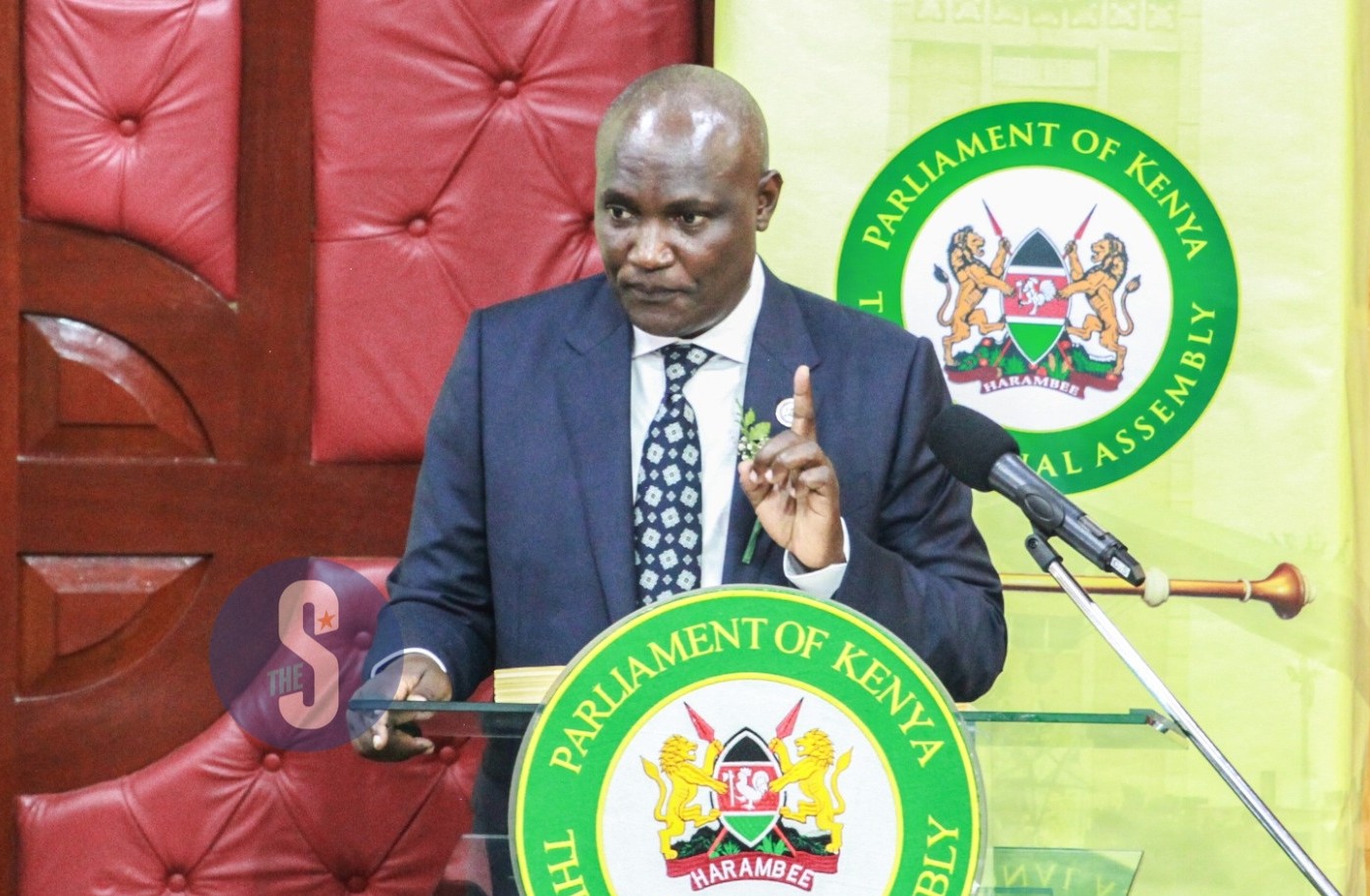
 National Treasury CS John Mbadi presenting 2025-26 budget estimates in the National Assembly, June 12, 2025. /ENOS TECHE
National Treasury CS John Mbadi presenting 2025-26 budget estimates in the National Assembly, June 12, 2025. /ENOS TECHEThe Kenya Kwanza government has highlighted sweeping reforms it's taking to improve access, equity and quality education across all levels of learning in a bold bid to transform the sector's overall landscape.
Speaking while delivering the 2025-26 budget statement on Thursday, June 12, in the National Assembly, National Treasury Cabinet Secretary John Mbadi outlined a comprehensive roadmap aimed at strengthening education outcomes as part of the Bottom-Up Economic Transformation Agenda (BETA).
“Our reforms in the education sector are designed to promote equality and prepare our young people for a competitive future,” Mbadi said.
“We are investing in structural changes that ensure no child is left behind, regardless of their economic background.”
At the heart of the reforms is the resolution of long-standing uncertainty surrounding the Competency-Based Education (CBE), which has faced implementation challenges since its inception in 2017.
The government, according to the CS, has now clarified the framework, giving confidence to parents, teachers and learners.
In an effort to streamline educational data management, the government has launched the Kenya Education Management Information System (KEMIS).
The new system consolidates all student records—from early childhood development to higher education—into a single, centralised database.
This move, Mbadi said, aims to improve planning, resource allocation and policy formulation.
Higher education funding has also been revamped, he said.
A new student-centred financing model has been rolled out with a strong focus on supporting learners from vulnerable families.
Under the revised framework, financial assistance is tailored to individual needs rather than a blanket approach.
“This model ensures that the students who need support the most receive it,” Mbadi said.
“It is a deliberate shift towards fairness and targeting in the disbursement of public funds.”
In a clear show of commitment to quality education, Mbadi said the government has recruited 76,000 new teachers, including those assigned to junior secondary schools.
The recruitment aims to improve the teacher-student ratio, which has been a persistent concern in the public education system.
Further financial commitments have been made to reinforce these reforms.
As such, the education sector was allocated Sh702.7 billion in the 2025-26 budget, representing 28 per cent of the Sh4.29 trillion budget.
Of this, the Teachers Service Commission (TSC) received Sh387.2 billion, including Sh7.2 billion for intern teacher recruitment and Sh980 million for teacher training on Competency Based Education.
To support basic education, Sh7 billion was allocated for free primary education, Sh28.9 billion for Junior schools' capitation, and Sh51.9 billion for free day secondary education.
An additional Sh5.9 billion was earmarked for administering national examinations, with Sh3 billion supporting the School Feeding Programme.
While reaffirming the commitment to free and compulsory basic education, CS Mbadi noted the fiscal realities facing the country.
He called for a reassessment of the universal public funding of examination fees, suggesting that well-off households could contribute more to ease the financial pressure on government coffers.
“We are in discussions with the Ministry of Education to evaluate cost-sharing options that do not compromise equity or examination integrity,” he said.
If adopted, the cost-sharing arrangement will see parents chip in to fund their children's examinations for the first time in 10 years.
The examination waiver was introduced by President Uhuru Kenyatta in 2015 for all public school learners and was extended to private schools in 2017.
Last year, the government allocated Sh5 billion towards the waiver.
In the 2025-26 budget, the government also pledged Sh1.7 billion for school infrastructure development and Sh1.4 billion for building and equipping Technical and Vocational Education Training (TVET) institutions.
Programmes such as the Kenya Primary Education Equity in Learning Programme (Sh13.3 billion) and Kenya Secondary Education Quality Improvement Project (Sh2.3 billion) were also funded to bridge learning gaps and improve quality.
For higher education, the government set aside Sh41.5 billion for the Higher Education Loans Board, Sh16.9 billion for university scholarships, and Sh7.7 billion for TVET student scholarships and capitation.
“Education is not just an investment in knowledge—it is an investment in dignity, equity and the future of our nation,” CS Mbadi concluded.
The reforms, though ambitious, signal a shift towards a more targeted, inclusive and efficient education system, aligning policy with the lived realities of Kenyan families.






